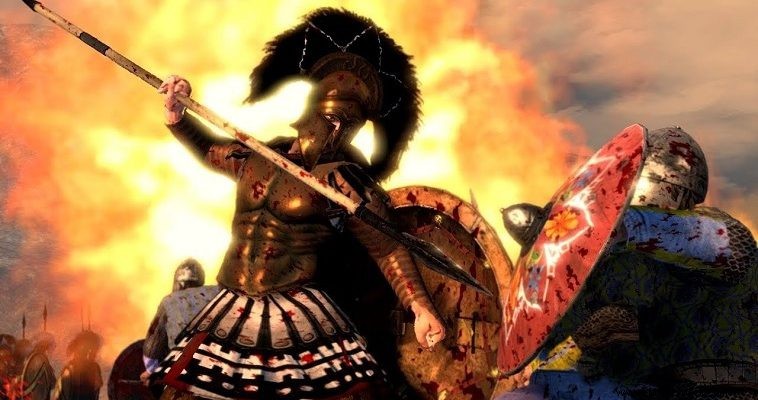
When the great Xerxes arrived before the strait of Thermopylae with his huge army he could not even imagine what was about to happen. A few Greeks partially blocked his way, humiliated him and tens, if not hundreds of thousands of his men – Herodotus mentions 1.5 million soldiers.
But he took it upon himself to get Xerxes out of the bloody impasse, in which a Greek, the Trachinian Ephialtes, was unfortunately trapped. He, in exchange for Persian gold, pointed out to the enemies the Anopaean road, the existence of which they had been unaware of until then.
Immediately Xerxes ordered the leader of the Immortals, that is, his elite guards, general Hydarnis, to march with 20,000 men during the night, so that the next morning he would be behind the Greek defenders of the strait. So it happened. But Leonidas was also informed of the betrayal by a Greek automole, Tyrrastiadas.
Then Leonidas made his decision. He and the 300 Spartans would stay in the strait. The rest of the Greeks – minus 400 Thebans whom he considered suspicious of joining the Persians – would leave. With their joint decision, on the side of the Spartans, they decided that all 700 Thespians, led by Demophilus, should die. Also, next to the Spartan king, the soothsayer Megistia voluntarily remained, after sending his son back.
Death exit
As the night progressed the forces of Hydarnis marched, led by Ephialtes, along the path. Around 07.00 on the morning of August 20 Xerxes had also prepared his men for a frontal attack. However, Leonidas and his men were already ready. With incredible speed the 1,000 Greeks attacked, singing the paean, against the hundreds of thousands of enemies, in the space between the first and second strait.
It was the "death exit" mentioned by Herodotus. Breaking the enemies, the Greeks then retreated into the strait. There they received the Persian attack, which they repulsed and even pursued the enemies outside the strait again. The dying heroes fought with insanity. Spears broke, swords were drawn from their sheaths and scattered death.
Four times the living dead turned the Persian human waves to flight . In the destruction, Leonidas was killed. The Persians tried to seize his body. But his men succeeded and pulled the dead king back, after crushing the enemy's attempt, killing Xerxes' two brothers too!
But it was then that Hydarnis appeared with his division. Immediately those Greeks who were still alive retreated hastily and took positions on a small hill (column), behind the so-called Phocian Wall. There they would fight the final battle. The Thebans only hastened to surrender.
With their broken spears, their pierced shields, their swords, with the hot blood of their enemies still on them, with their own blood flowing profusely from the wounds each of them brought to their bodies, the Greeks of Thermopylae , lined up waiting for the end.
The Persians surrounded the heroes. A shower of arrows and it was all over. The barbarians did not even dare to finish them off with weapons! The battle of Thermopylae was over. The barbarians finally passed. The defenders all fell, having killed at least 20,000 of Xerxes' men.
Soon, however, the blood of the heroes would be vindicated in Salamis and Plataea.
